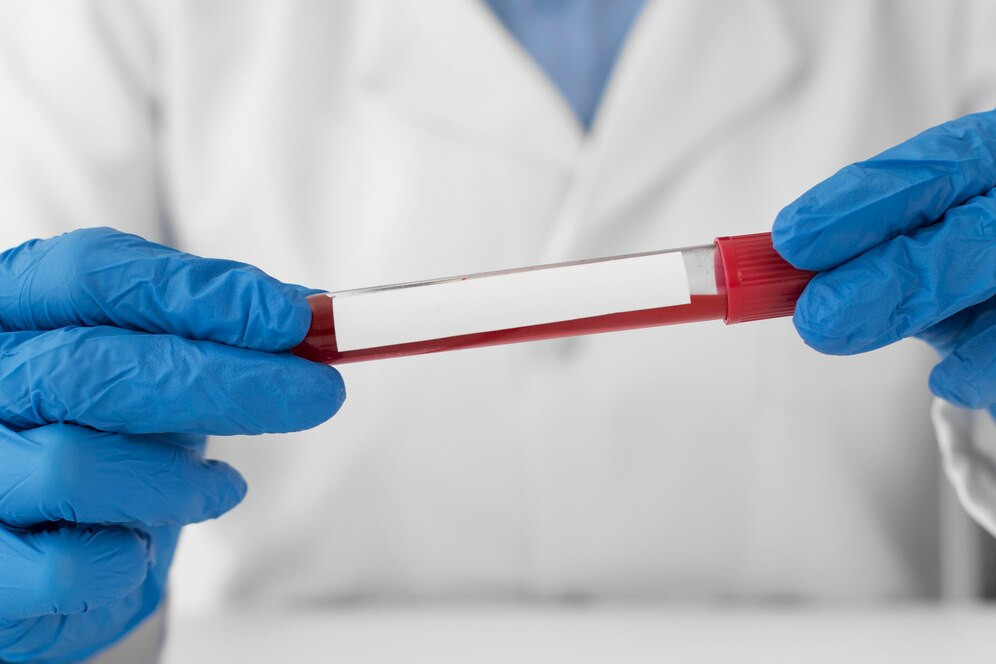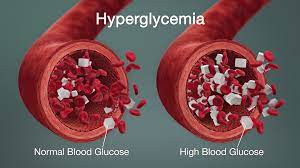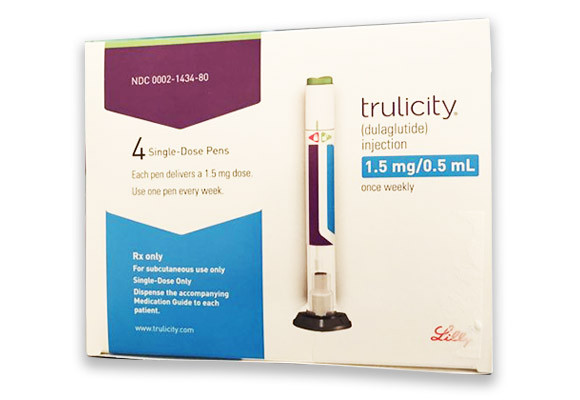Definisi
Pemeriksaan insulin darah adalah pemeriksaan yang dilakukan untuk mengukur kadar insulin di dalam darah. Selain itu, pemeriksaan ini juga bertujuan untuk mengevaluasi kinerja sel beta pada pankreas, yaitu sel yang berfungsi untuk menghasilkan insulin.
Insulin merupakan hormon yang membantu gula darah atau glukosa untuk bergerak dari aliran darah ke seluruh sel di tubuh. Hormon ini diproduksi sebagai respons terhadap kenaikan gula darah. Hormon insulin juga berperan penting dalam menyimpan glukosa yang digunakan sebagai sumber energi utama bagi tubuh.
Kadar glukosa akan mengalami peningkatan setelah makan dan memicu pankreas untuk memproduksi hormon insulin. Setelah itu, insulin akan dilepaskan ke dalam darah dan mengangkut glukosa ke dalam sel tubuh sehingga kadar gula darah akan menurun.
Tanpa insulin, glukosa tidak bisa masuk ke dalam sel tubuh sehingga glukosa tetap berada di aliran darah. Hal inilah yang menyebabkan kadar glukosa darah menjadi tinggi. Bila kadar glukosa darah terlalu tinggi atau rendah maka dapat menyebabkan berbagai masalah kesehatan.
Kadar insulin yang terlalu rendah dapat menyebabkan glukosa dalam darah terlalu tinggi atau hiperglikemia sehingga dapat menyebabkan diabetes, sedangkan kadar insulin yang terlalu tinggi dapat menyebabkan kadar glukosa dalam darah terlalu rendah atau dikenal sebagai hipoglikemia.
Indikasi
Pemeriksaan ini biasanya dikerjakan pada beberapa kondisi sebagai berikut, yaitu:
- Untuk membantu penegakkan diagnosis hipoglikemia apabila memiliki keluhan dan tanda klinis yang dicurigai
- Untuk memantau hasil pengobatan dari diabetes tipe 2
- Untuk mendiagnosis resistensi insulin (suatu kondisi dimana sel tubuh tidak dapat merespons kerja hormon insulin sebagai mana mestinya)
- Untuk mendiagnosis insulinoma, tumor yang tumbuh di organ pankreas
- Untuk memantau keberhasilan operasi transplantasi pankreas pada pasien diabetes tipe 1
- Untuk memantau jumlah insulin yang dihasilkan oleh pankreas
Kontraindikasi
Tidak ada kontraindikasi atau kondisi khusus yang membuat seseorang tidak bisa melakukan pemeriksaan ini.
Persiapan Sebelum Pemeriksaan
Persiapan sebelum pemeriksaan insulin darah adalah dengan puasa kira-kira dalam waktu minimal 8 jam. Selama berpuasa, Anda tidak boleh mengonsumsi makanan dan minuman yang berkalori, namun minum air putih yang tidak mengandung gula masih diperbolehkan. Anda disarankan untuk memulai puasa di malam hari agar tidak terasa berat melakukannya (puasa selama satu malam). Lalu, Anda pergi mengunjungi ke laboratorium saat pagi hari sebelum makan besar di pagi hari.
Anda juga disarankan untuk melakukan konsultasi medis terlebih dahulu kepada dokter sebelum melakukan pemeriksaan ini sebab ada beberapa obat (misalnya suplemen biotin/vitamin B7) yang dapat menganggu hasil laboratorium, sehingga hasil pemeriksaan tidak menggambarkan kondisi Anda yang sesungguhnya.
Prosedur Pemeriksaan
Pemeriksaan insulin darah umumnya menggunakan sampel serum darah sebanyak 0,25 - 0,5 ml. Sampel serum darah ini diambil dari pembuluh darah vena dan akan dikumpulkan ke dalam tabung khusus. Petugas laboratorium akan memakai sarung tangan khusus dan APD (Alat Pelindung Diri) saat mengambil sampel pemeriksaan.
Sebelum mengambil darah, petugas akan memasang pita elastis dan membersihkan area penusukan jarum dengan kasa antiseptik. Biasanya petugas mengambil darah di area lipatan siku. Setelah darah diambil dan dimasukkan ke dalam tabung khusus, petugas akan melepas pita elastis yang terpasang, menekan dan membersihkan area penusukan dengan kasa antiseptik.
Prosedur pemeriksaan ini hanya berlangsung selama beberapa menit saja. Sampel darah yang telah didapatkan akan diperiksa menggunakan mesin khusus di laboratorium. Hasil pemeriksaan bisa diketahui dalam kurun waktu beberapa jam.
Nilai Normal dan Abnormal
Rentang nilai normal insulin dibedakan berdasarkan usia, jenis kelamin, riwayat kesehatan, dan lain sebagainya. Berikut ini merupakan rentang nilai normal dan abnormal dari hasil pemeriksaan insulin.
|
Kondisi |
Nilai Normal (mIU/L) |
|
Puasa |
< 25 |
|
30 menit setelah pemberian glukosa |
30 - 230 |
|
1 jam setelah pemberian glukosa |
18 - 276 |
|
2 jam setelah pemberian glukosa |
16 - 166 |
| ≥ 3 jam setelah pemberian glukosa |
< 25 |
Berdasarkan tabel di atas dapat diketahui bahwa kadar insulin darah dianggap tidak normal jika hasilnya lebih rendah atau lebih tinggi dari rentang nilai normal yang tercantum pada tabel.
Meskipun demikian, setiap laboratorium memiliki rentang nilai yang sedikit berbeda antara satu laboratorium dengan laboratorium lainnya. Hal ini terjadi karena perbedaan alat atau mesin yang digunakan.
Baca Juga: Pemeriksaan Gula Darah Sewaktu - Indikasi, Prosedur, dan Hasil Pemeriksaan | AI Care (ai-care.id)
Hasil dan Saran (Pemeriksaan Lanjutan)
Rendah
Jika hasil pemeriksaan insulin darah menunjukkan nilai rendah, sebaiknya Anda berkonsultasi dengan dokter. Kadar insulin darah yang rendah dapat menandakan adanya kondisi berikut:
- Diabetes tipe 1
- Pankreatitis
- Penyakit autoimun
- Pasca pankreatektomi (operasi pengangkatan organ pankreas)
Normal
Jika hasil pemeriksaan insulin darah menunjukkan nilai normal, kemungkinan besar Anda telah menjalankan pola hidup sehat dengan baik. Anda disarankan untuk tetap mempertahankan pola hidup sehat Anda saat ini sehingga dapat mencegah beberapa penyakit yang dapat ditandai dengan kadar insulin yang tinggi (misalnya resistensi insulin) atau kadar insulin yang rendah (misalnya diabetes tipe 1).
Tinggi
Jika hasil pemeriksaan insulin darah menunjukkan nilai tinggi, sebaiknya Anda berkonsultasi dengan dokter. Kemungkinan dokter akan menyarankan perubahan pola makan dan gaya hidup menjadi lebih sehat, atau bahkan juga memulai terapi obat untuk membantu menurunkan kadar insulin darah Anda.
Kadar insulin darah yang tinggi dapat ditemukan pada beberapa kondisi medis tertentu, misalnya:
- Resistensi insulin
- Diabetes tipe 2
- Hipoglikemia
- Sindrom Cushing
- Insulinoma
Konsultasikan ke Dokter yang Tepat
Hasil pemeriksaan insulin darah pada orang dewasa dapat dikonsultasikan dengan dokter umum, untuk selanjutnya dilakukan pemeriksaan lanjutan ataupun memulai terapi untuk diagnosis yang sesuai. Anda juga dapat berkonsultasi dengan dokter penyakit dalam atau konsultan Metabolik-Endokrinologi untuk berdiskusi mengenai masalah insulin darah Anda lebih jauh. Pada pasien anak, hasil pemeriksaan selain normal harus dikonsultasikan dengan dokter spesialis anak.
Mau tahu informasi seputar hasil pemeriksaan laboratorium, radiologi, dan lainnya? Cek di sini, ya!
- dr Nadia Opmalina
Blood Test : Insulin . (2021). Retrieved 22 November 2022, from https://kidshealth.org/en/parents/test-insulin.html
Insulin. (2021). Retrieved 22 November 2022, from https://emedicine.medscape.com/article/2089224-overview
Insulin in Blood. (2021). Retrieved 22 November 2022, from https://medlineplus.gov/lab-tests/insulin-in-blood/
Insulin. (2021). Retrieved 22 November 2022, from https://www.testing.com/tests/insulin/
Total and Free Insulin (Blood). (2022). Retrieved 22 November 2022, from https://www.urmc.rochester.edu/encyclopedia/content.aspx?contenttypeid=167&contentid=insulin_total_free




/62d2449c2c10c.jpg)







